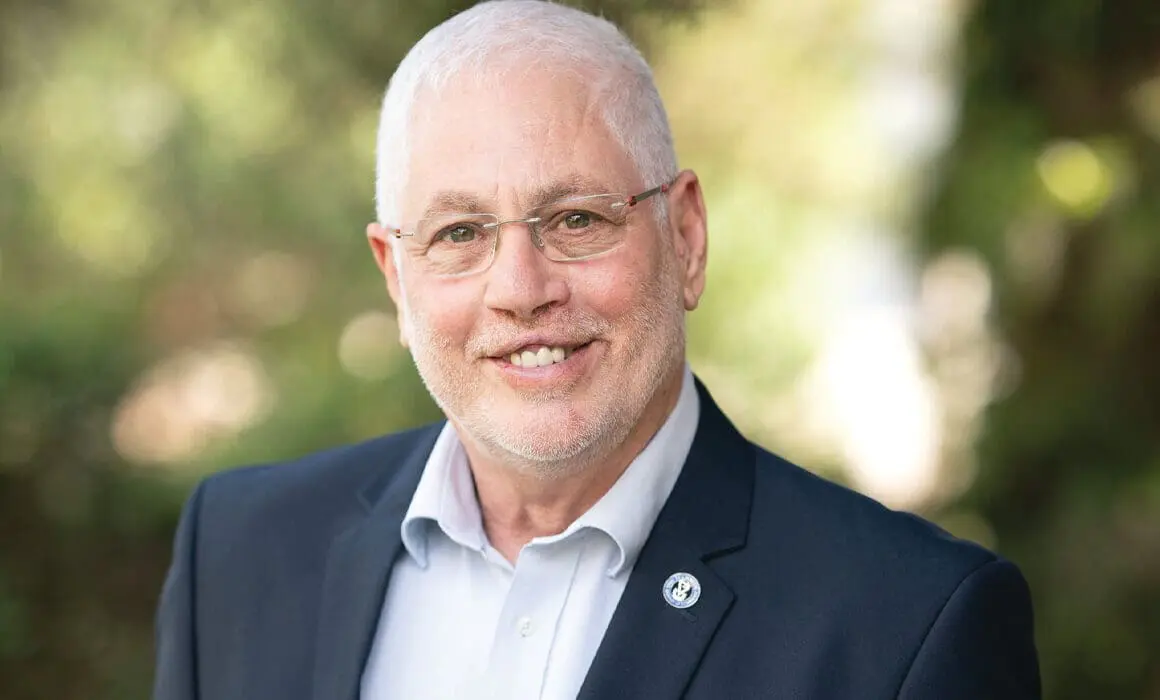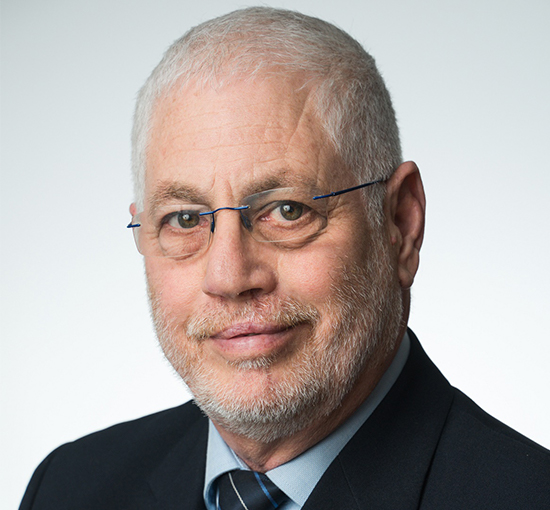President Sivan’s Vision for Technion’s Second Century

Professor Uri Sivan will begin his second term as Technion President in October 2023. In spite of the COVID-19 pandemic and ensuing instability that marked his first term, he nonetheless achieved objectives to ensure the Technion’s continued growth and advancement. In this Q&A, he recaps highlights of his tenure to date and looks at what’s up next.
◼ What were some of the highlights of your first term?
President Uri Sivan: During these challenging years we have established or are setting up no less than 12 research centers; repositioned the Technion in the changing academic-industry ecosystem; reformed some of our teaching approaches; extended community outreach programs; recruited the best researchers; won a record number of ERC grants and prizes; and attained even higher standings in prestigious global rankings.
On the human health front: We set up the Center for Clinical Skills in the Rappaport Faculty of Medicine to position our medical training at the forefront of patient-oriented treatment, established the Wolfe Center for Engineering and Medicine in Collaboration with Rambam, and recently opened the May-Blum-Dahl Human MRI Research Center. In computer science: We established the Tech.AI Hub, which will serve as the beating heart of all the campus’ AI activities. We launched the Zimin Institute for AI Solutions in Healthcare to support commercialization of advanced applied healthcare research. And construction is expected to begin on the Martin and Grace Druan Rosman High-Performance Computer Data Center. Fostering entrepreneurship: We recently completed the Mehoudar Center for Inventors, which will encourage innovators from all over Israel, from school children to university students and faculty members, to realize creative engineering designs. And to dream and imagine. On the sustainability front, we are launching the Stewart and Lynda Resnick Center for Sustainability and Catalysis.
◼ Can you discuss your plans for cultivating collaboration between the Technion and industry?
We are encouraging firms to move their R&D centers to our campus –– and have met success. PTC, the multifaceted software giant with roots in computer-aided design applications, recently moved its center and 100 researchers to the Gutwirth Industrial Park on campus. Other recent collaborations include agreements with Verily, the research arm of Alphabet Inc.; Intel Corp.; Pfizer; the renewable energy firm Doral Group; and more.
To further foster collaboration between academia and industry, we created research fellowships that help integrate scientists from the private sector into research, teaching, and mentoring students. The Research Fellow from Industry spends one day a week at the Technion, taking part in academic activities. Some 35 researchers have already joined the ranks of the Technion via this path.
The Technion has also invested substantial resources to improve the commercialization process of ideas developed by the University’s innovators. As a result, 15 new companies opened last year, triple the average number of startups annually three years ago.
◼ What initiatives have you instituted for Technion students –– the soul of the University and promise of the future?
We have upgraded teaching labs, bolstered the Center for Promoting Learning and Teaching, opened a studio for digital teaching, developed the Schulich Leaders Entrepreneurship Program for outstanding undergraduates, and promoted tech entrepreneurship and innovation education through various programs. We also inaugurated the Broshim Dormitory, are renovating other student dorms, and began designing a state-of-the-art building for aerospace engineering and a new building for computer science.
Striving to produce well-rounded students, we are upgrading the Department of Humanities and Arts, are expanding the presence of artists and art on campus, and launched the Sonia Marschak Artist in Residence program to foster dialogue between the arts and the sciences. Lastly, we are expanding emotional and psychological support services with the opening of the Fischer Center for Reservists and Students with Learning Disabilities and the Soft-Landing program and math summer camp to help first years adjust to academic life.
◼ The Technion is well-positioned to tackle the challenges of the 21st century with a multidisciplinary approach. How are you building on the University’s strengths?
The University has experts in many fields, including engineering, science, medicine, architecture, and education. To maximize this advantage, we have constructed an innovative model, the “Technion-Wide Frontier,” which brings together a spectrum of relevant stakeholders. Two such frontiers have already been created: one for human health and one for sustainability. Each embraces a variety of academic departments that benefit from managerial support to conduct multidisciplinary ideation, establish joint research projects, develop pedagogy, and other initiatives.
Based on my experience in establishing the Russell Berrie Nanotechnology Institute at the Technion, I knew it was essential to connect both researchers and academic departments. Nonetheless, it took some trial and error to devise a model most suitable for dealing with large-scale multi-disciplinary challenges. To date, 16 academic departments have already joined the Human Health Frontier. Building on the lessons we learned from that pilot, we recently launched the Sustainability Frontier and are planning to establish a third Frontier focusing on engineering.
◼ How will the Technion continue to attract and maintain the best and brightest faculty in our increasingly competitive academic environment?
The Technion launched a series of initiatives to improve faculty support, including a pilot program to reduce the time needed to set up new laboratories. We have streamlined the promotion process and set up a fund with our profits from commercialization to help provide researchers with cutting-edge facilities. We have raised significant funds to establish the Crown Vanguard Award for Science and Technology, which grants leading mid-career researchers the resources to launch new research directions. And we established the Campus Leaders Program to cultivate managerial leadership among faculty and administrative staff.
I am especially proud of our efforts and success in increasing the representation of women in the faculty and academic management positions, including the creation of a new position: VP for Diversity and Inclusion.
◼ Can you discuss priorities for your second term and its convergence with the Technion Centennial Anniversary?
As we prepare to celebrate the Technion’s 100th anniversary and as I look ahead to my next term, I hope to promote additional transformative projects that will enable our University to enter its second century with confidence, certainty, and determination.
We are building the André Cohen Deloro Institute for Transformative Biomedical Sciences and Engineering, which will house 28 state-of-the-art labs for all disciplines, and the Wolfe Center for Translational Medicine and Engineering. Collaborating with Rambam Health Care Campus, the Wolfe Center will combine engineering and medical research to foster innovative technologies.
Maintaining our leadership in sustainability and environmental issues, the Technion is constructing the Resnick Sustainability Center for Catalysis, focused on finding ways to maintain global growth while confronting the climate crisis. These efforts will get a boost from the Carasso FoodTech Innovation Center and from the Technion Sustainable Protein Research Center, aimed at becoming a hub for fundamental and applied research in alternative food. We also plan to establish a research center for simulated cities, to help cities become more adaptable to social, economic, and environmental change.
The Technion has played a vital role in transforming Israel into an epicenter of global innovation while achieving preeminent status in STEM academia worldwide –– and will continue to do so.




